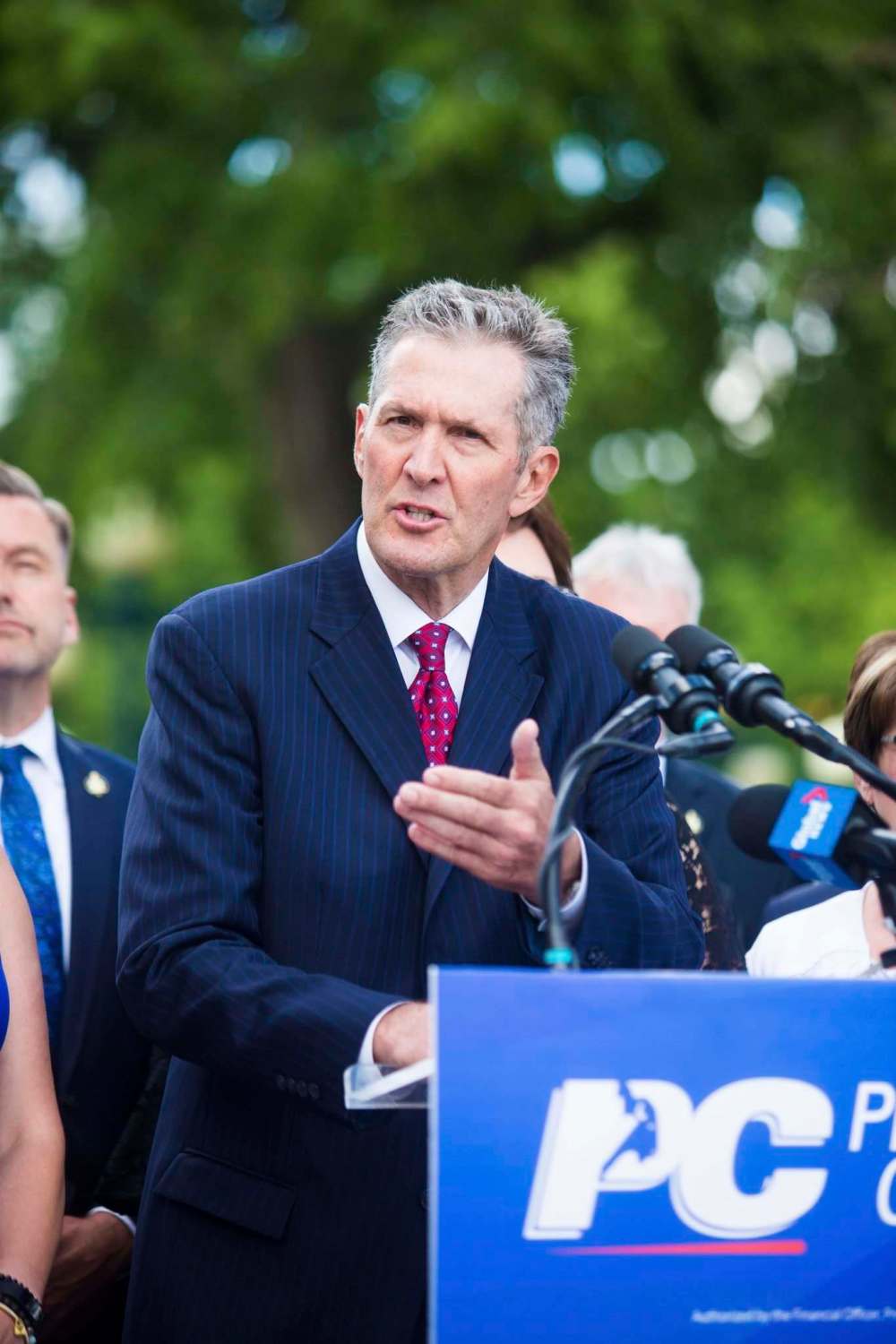Like it or not, health care is the election issue
Read this article for free:
or
Already have an account? Log in here »
To continue reading, please subscribe:
Monthly Digital Subscription
$0 for the first 4 weeks*
- Enjoy unlimited reading on winnipegfreepress.com
- Read the E-Edition, our digital replica newspaper
- Access News Break, our award-winning app
- Play interactive puzzles
*No charge for 4 weeks then price increases to the regular rate of $19.00 plus GST every four weeks. Offer available to new and qualified returning subscribers only. Cancel any time.
Monthly Digital Subscription
$4.75/week*
- Enjoy unlimited reading on winnipegfreepress.com
- Read the E-Edition, our digital replica newspaper
- Access News Break, our award-winning app
- Play interactive puzzles
*Billed as $19 plus GST every four weeks. Cancel any time.
To continue reading, please subscribe:
Add Free Press access to your Brandon Sun subscription for only an additional
$1 for the first 4 weeks*
*Your next subscription payment will increase by $1.00 and you will be charged $16.99 plus GST for four weeks. After four weeks, your payment will increase to $23.99 plus GST every four weeks.
Read unlimited articles for free today:
or
Already have an account? Log in here »
Hey there, time traveller!
This article was published 20/06/2019 (2368 days ago), so information in it may no longer be current.
So, now we know. Manitobans are going to the polls on Sept. 10.
Despite the determined posture he adopted in announcing the election date on Wednesday outside the Manitoba legislature, this probably isn’t unfolding in the way Premier Brian Pallister envisioned it.
In his pursuit of the premier’s chair back in 2016, Mr. Pallister pledged to put Manitoba’s finances back in order. After his Progressive Conservative government was elected, he embarked on a program of tough-love financial decisions aimed at backing up his campaign rhetoric, reining in spending, putting organized labour back in its place and, perhaps most fervently pursued, delivering on a promise to roll back the provincial sales tax by one percentage point within his first term.

Mr. Pallister was going to be the dollars-and-sense premier; the guy who cleaned up the fiscal mess created by nearly two decades of tax-and-spend NDP imprudence. And given the near-complete disarray the NDP had created for itself during the Selinger government’s implosion, the stage was neatly set for the Pallister PCs to cruise to a second electoral victory regardless of when — at the mandated fixed election date in 2020, or this year on Sept. 10, as we now know — the premier decided to send Manitobans to the polls.
But now, even as Mr. Pallister heads into the very early provincial election that had been rumoured for many weeks, he must realize he will, by many Manitobans, not necessarily be viewed positively as the smart-money-manager premier.
Instead, with increasing urgency and negative connotation daily, Mr. Pallister will be perceived by some as the premier who made a bollocks of health-care reform. The past week’s headlines alone have delivered enough bad news to fuel an opposition party’s entire attack-advertising strategy: St. Boniface Hospital’s emergency department “critical and unsafe”; Concordia Hospital’s “seriously low morale”; consultant Dr. David Peachey’s assessment that the province’s health-care restructuring “should be paused immediately while the underpinning process undergoes ‘repair and restore’ activities”; a Manitoba family’s cry that their mother’s death in St. Boniface was a direct result of its ER being overloaded and under-resourced.
When he asks Manitobans to deliver him a second mandate, Mr. Pallister will rightly be able to claim the province’s financial picture has been vastly improved by his government’s austerity-minded agenda. How warmly that message will be received remains to be seen, however, as the news related to health care — perennially a top-of-mind issue for voters in any Canadian election — continues to be consistently and almost overwhelmingly bad.
At a time when he should really face no legitimate ballot-box competition from the still-reeling NDP or the rebuilding-but-not-quite-relevant Liberals, the premier might still find himself on the defensive in a campaign that should have been an easy stroll to a second term. With the campaign about to begin in earnest, Mr. Pallister will likely soon find that he has become his own most fearsome adversary.
Just as another Progressive Conservative premier, Gary Filmon, had to do in the 1990s, Mr. Pallister is going to have to fight an election campaign with health care as its central, dominant issue. And just as it was for Mr. Filmon, it will be an uncomfortable task.
That the current PC government might actually be derailed by this issue seems highly unlikely, given the state of affairs in the other parties contesting the election, but his time on the hustings will nonetheless offer Mr. Pallister a reckoning he neither expected nor desired.










